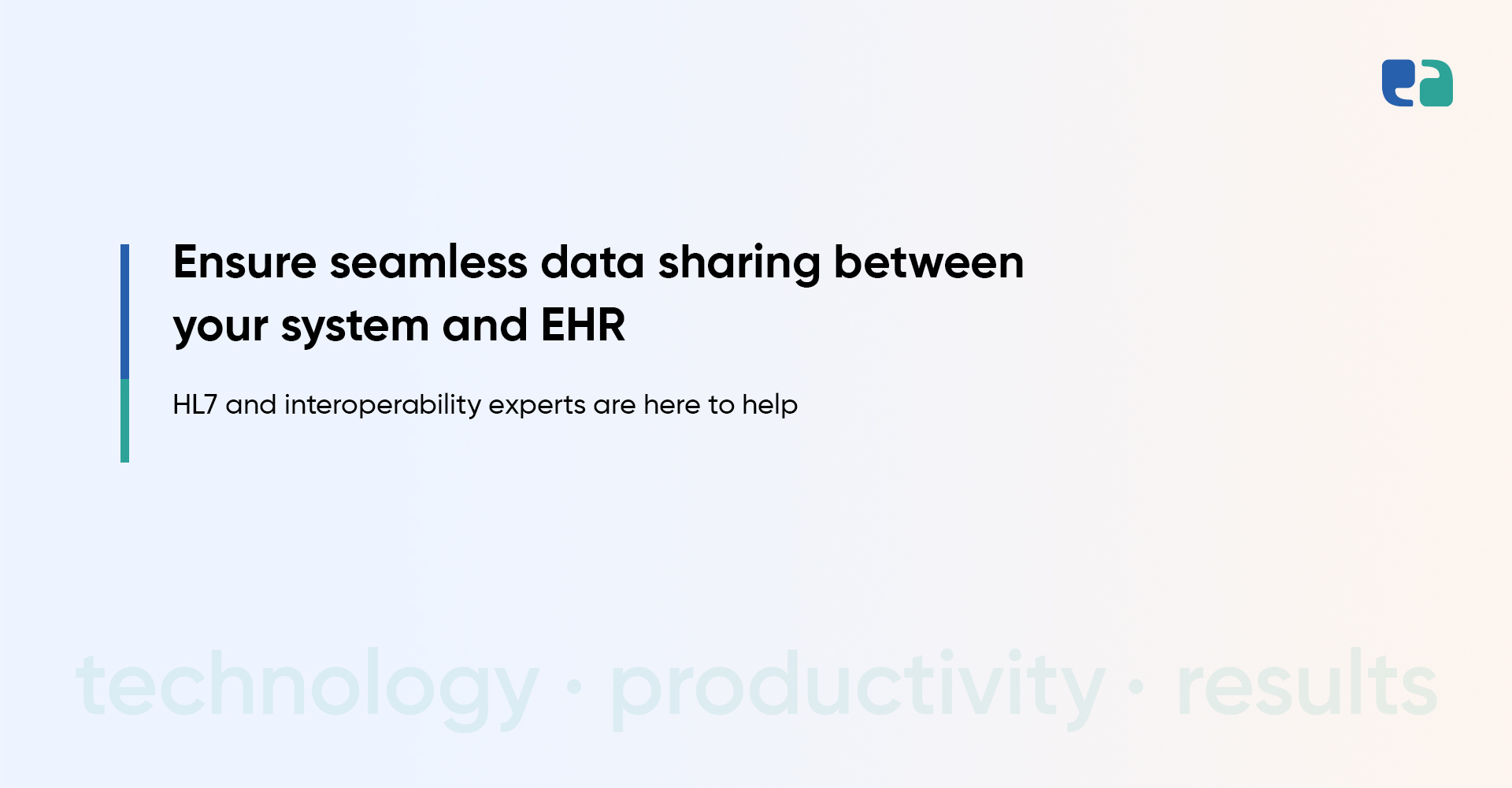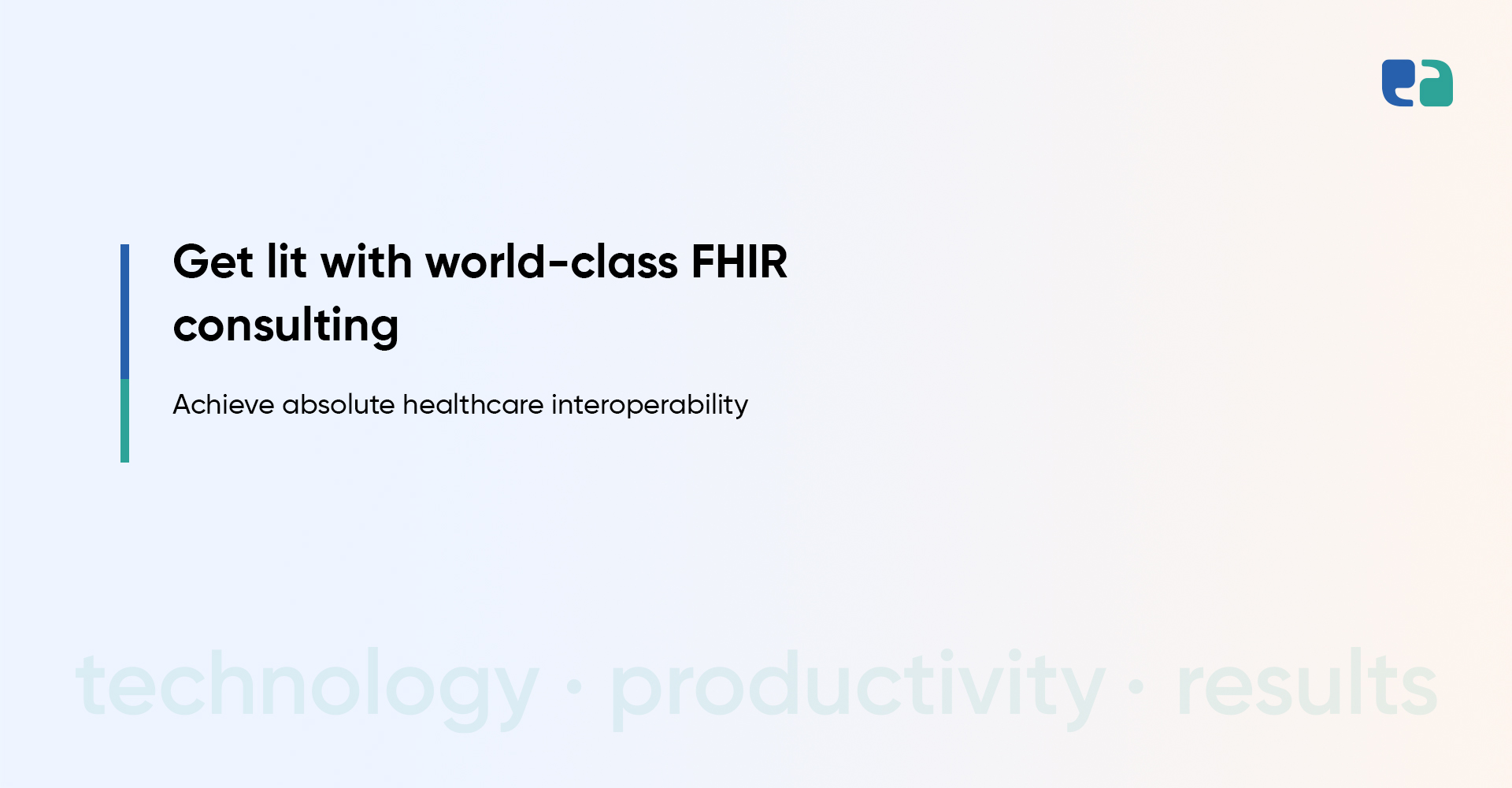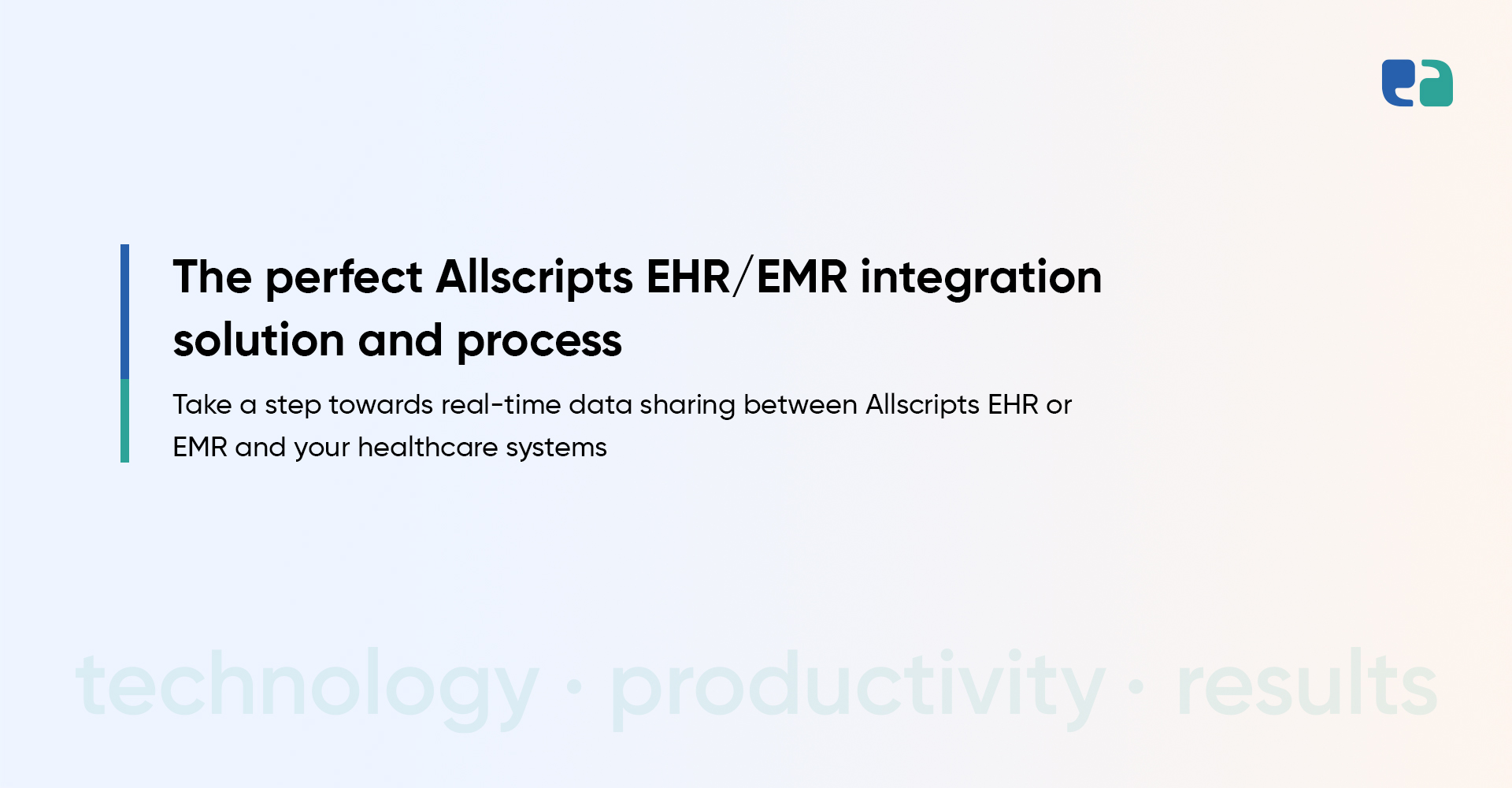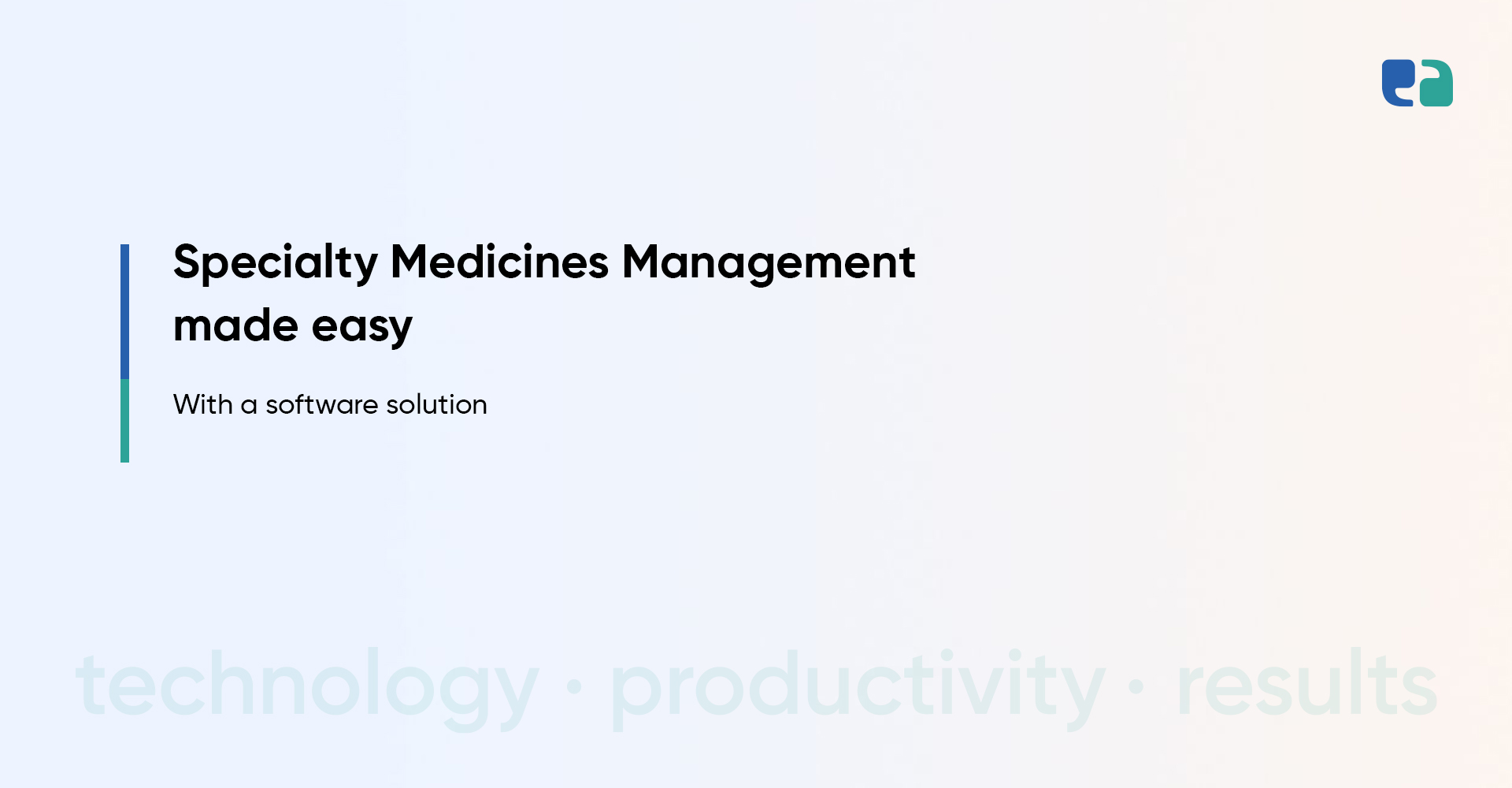The adoption of digital health technology or tools has been on an upward trajectory.
The following chart depicts that the adoption of digital health tools in all categories has dramatically increased between 2015 and 2019.
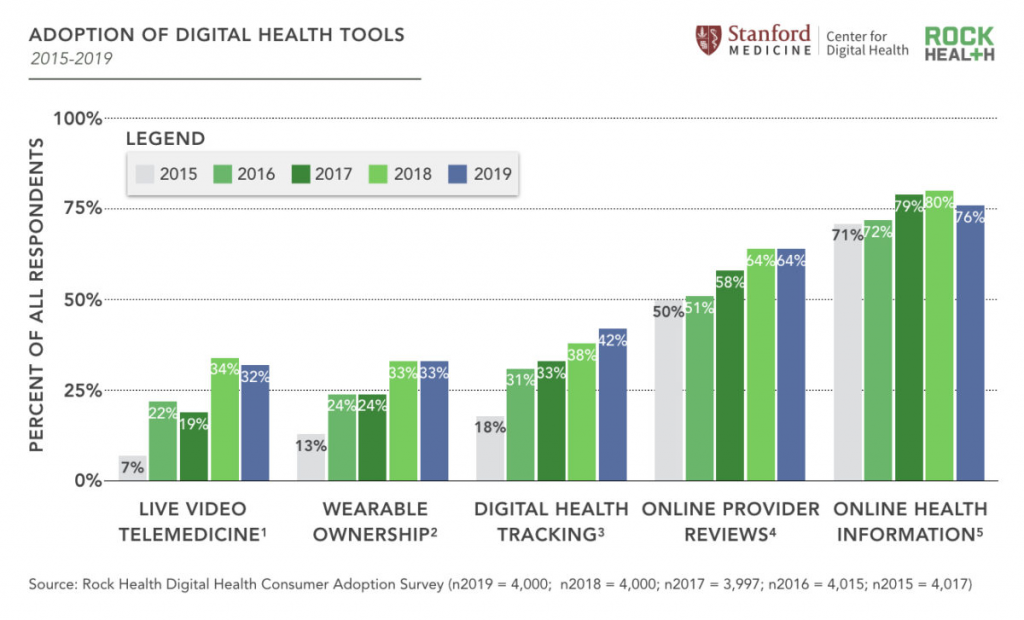
However, like other digitalized industries, the digital healthcare industry has also evolved with many challenges.
One such deep-rooted challenge is related to data and security.
A healthcare app or any other digital healthcare tool in almost all categories requires real-time patient or user data.
Without this data, not a single objective of the healthcare app can be satisfied.
To provide quality care and not promote manual workflows, it is vitally important for a healthcare app or software to fetch patient data from different sources.
Here is where EHR (Electronic Health Records) systems and EHR integration come into the picture.
What is the EHR System?
EHRs are a vital part of the digital healthcare system.
An EHR system is the digital version of a patient’s paper charts.
It works in real time and makes patient information available instantly and securely to authorized users.
An EHR system stores the patient’s medical history, diagnosis, medications, treatment plans, allergies, radiology images, and laboratory test results.
One of the major features of the EHR system is that it can be integrated with any other healthcare mobile app or software.
In fact, it is designed and developed in such a way that it can share real-time data with other mobile apps and software.
What are the Major Differences Between EHR and EMR?

People generally get confused between EHR and EMR as both are the same thing with different use cases and limitations.
Unlike EHR, an EMR is used within a healthcare organization such as a hospital.
Why?
Well, it is unable to share clinical information with other EMRs natively.
However, using 3rd party tools or solutions, you can make it happen but it requires a lot of effort and technical expertise.
Another major difference between EHR and EMR is accessibility.
EMR can only be accessed by clinicians whereas patients can also add data to EHR.
What is EHR Integration?
As we discussed earlier, multiple healthcare entities generate different medical data for the same patient.
This decentralized data should be available on a single platform to actualize easy access to medical data for clinicians.
An EHR system stores patient data generated by different healthcare entities.
If a healthcare app or healthcare software requires patient data, it should be integrated with the EHR system.
This means, that EHR integration is nothing but the process of integrating digital health products including healthcare mobile apps, software, or CRM in terms of data and clinical workflow with an EHR system.
The output of the EHR integration is seamless patient data sharing between EHR and digital health tools.

When Should You Consider an EHR Integration?
The main purpose of the EHR integration is to allow secure, efficient, and seamless patient health records exchange between one electronic system to another.
As a result, medical professionals can deliver a more patient-centered healthcare solution.
So, here are some cases in which you should do EHR integration to deliver a more quality care experience.
What are the Benefits of EHR Integration?
The following are the top benefits or reasons why EHR or EHR integration service is crucial for the success of digital healthcare tools.
What are the Common Challenges of EHR Integration?
Integration of EHR with your existing practice management system is not an overnight process, it needs effective planning and execution to compete with all the integration-related issues.
Cloud-Based EHR vs Locally-Hosted EHR
Before integrating EHR, you should know the difference between cloud-based EHR and locally-hosted EHR as it influences your budget and long-term benefits.
The Cloud-Based EHRs
The Locally-Hosted EHRs
Top EHR Systems or Vendors in Canada/USA We Offer Integration With
There is more than one EHR vendor available in Canada and this is what makes it a difficult task to select one.
Sensing the urgency, we assess your requirements and help you select the most suitable EHR system or vendor along with EHR integration.
Team Members (Resources) Needed to Execute Integration with EHR Successfully
It is not a single-man job as it requires different skill sets such as development, compliance, and interoperability.
1: Healthcare Developers
They carry out all the coding parts required to establish communication between your digital solution and the API provided by the EHR vendor.
2: Interoperability Experts
They work parallel with developers to help them in understanding and implement interoperability standards such as FHIR and HL7.
3: Compliance Specialists
They have a serious job.
They ensure that no newly emerged privacy vulnerability puts compliance-readiness at risk while integrating EHR with a digital solution.
Integrate Multiple EHRs in a Single Shot with Redox Integration Engine
One of the limitations of EHR integration is we have to integrate each EHR individually which increases the development hours and so does the cost.
So, if you are planning to integrate multiple EHRs with your healthcare digital solution, you have to invest in each EHR integration.
But with Redox Integration Engine, you can integrate all top EHRs with your healthcare solution in a single shot.
Redox is 3rd party solution that offers a single API to connect all top EHRs including Allscripts, AthenaHealth, and Cerner with any sort of healthcare app.
Our Ideal Procedure for EHR Integration
As a healthcare IT company, we always focus on a client-centric approach which helps us to deliver the most promising EHR integration solutions.
